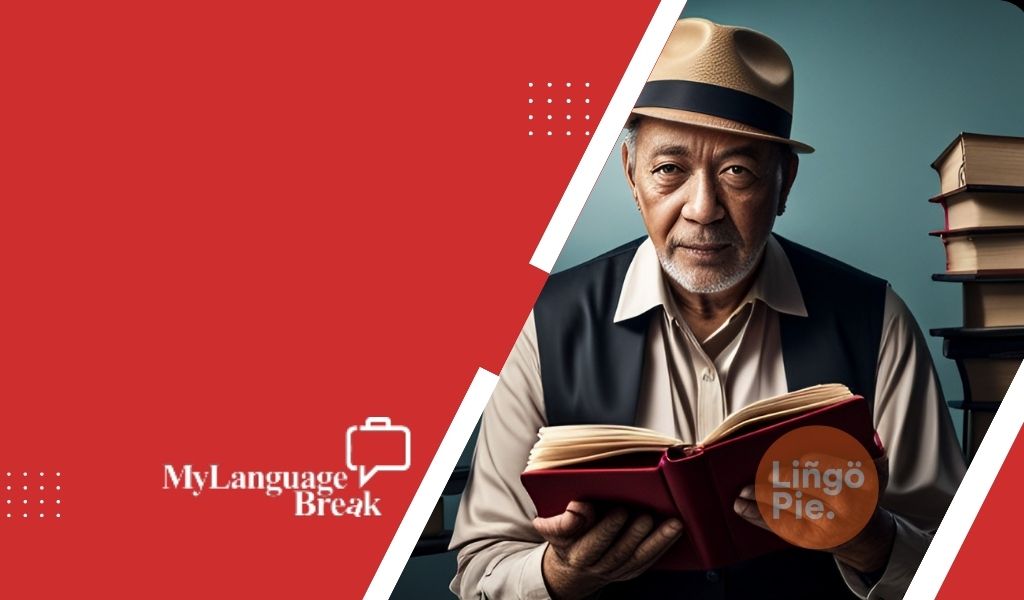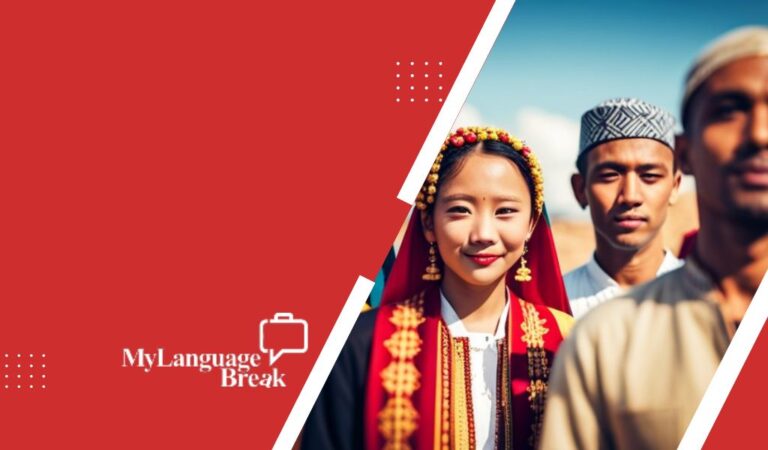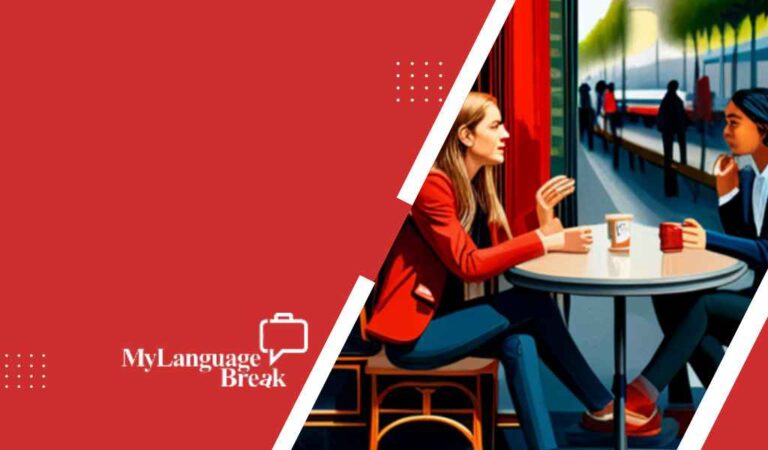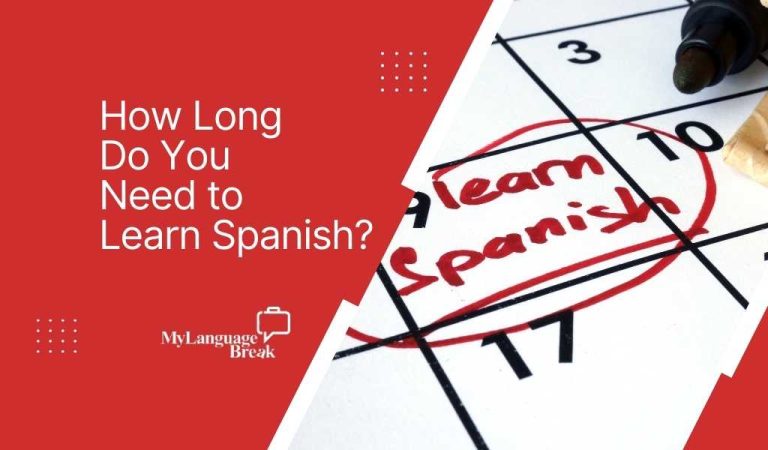When Can You Call Yourself a Polyglot: How many languages can a polyglot speak?
Did you know that a normal individual who knows to speak several languages only uses a few of the vocabularies they know during their daily routine? Indeed. They only get to use a fraction of the many international words that they know on a regular basis. Just like an ancient joke that when someone speaks almost four different languages they are called quadrilingual, those who speak three languages are called trilingual, while people who speak two languages are bilingual, and those who can only speak one language is either an American or British, that alone is entirely true. Again, it’s an old joke.

So, in your own perspective, how many languages should you learn to speak before you can be a certified polyglot? Any idea? Well, with the prefix “poly” means more than one or many; other meaning means having too much volume or a hefty number of something, whilst the Greek meaning “plus” – many or much. But regardless of these meanings, a polyglot is someone who has the skills to speak more than just four languages, so you can just run your ideas within that theory.
Therefore, the underlying question that polyglots often encounter may receive various answers since – again, polyglots can speak more than just four languages depending on their interest, passion, capacity, capability, and time. Although you can confidently tell yourself that you are a master of several global languages, answer the above question appears to be more complex than just identifying the languages you are good at speaking.
HOW MANY LANGUAGES CAN A POLYGLOT SPEAK?
“How many languages can you speak?”A somewhat overrated question a polyglot encounter all the time. As well as this question “Are you monolingual? Bilingual? Tri-lingual? Or Multilingual?” or “Do you consider yourself a polyglot?
Well, to get this question done and over with, let’s define each one of them:
- Monolingual: An individual who can only speak one language and comprises 40% of the global population.
- Bilingual: Someone who’s skilled enough to speak two different foreign languages and there are about 43% of these proficient beings who are walking this earth.
- Trilingual: A person who is well-versed in three different languages and is part of the 13% global population.
- Multilingual: Human beings who are expert in more than just two languages, but most are used to four global languages or sometimes more! And there are roughly 3% of humans who can converse in more than four languages.
- Polyglot: Considered to be the genius in languages who can communicate in several different languages, however, only less than 1% of Homo sapiens can converse in five different languages flawlessly.
- A monolingual is a person who can only comprehend one language. In English-speaking nations, this is generally noted statistically, like the United States, Australia, United Kingdom, and New Zealand, due to the mindset that studying a second language is less important or is not necessary because they are already used to the common English language which almost the whole world can speak.
- A bilingual person is someone who has learned to speak two international languages either both at the same time or a bit later in life. However, it’s a usual scenario that though they are well-versed in both languages, one language will still appear to be superior over the other. Like English over Spanish, French over Arabic or Italian over Japanese. The same case applies to immigrants who migrated from their native homelands to any English speaking nation.
- A trilingual, on the other hand, choose to learn a third language. If you will notice people in Hong Kong are considered trilingual because they can speak English, Mandarin, and Cantonese, the Philippines too because they can speak Tagalog (native language), English, and Spanish, the same goes with Norway since they can speak English, Swedish, and Norwegian. If you are a traveler, you will notice a lot of countries who have more than just one foreign language influence.
- Now, multi-lingual and polyglots are the extra gifted ones who can understand and speak more than 4 varying languages, depending on the country or state. There are actually some countries that are well-known because they have both multi-lingual and polyglots just like Morocco who’s influenced by English, French, Arabic, Moroccan, and Spanish. Switzerland, by the way, has Romansh, Italian, German, French and, of course, English. Factors such as foreign intervention, differentiation in the native language vocabulary are driving influences in this category. Like for instance, the Moroccan language is affluent in foreign words; it includes a combination of Spanish, Arabic, and French words. This reality alone already provides the speaker with a benefit and a great starting point to multilingualism.
These are some of the factors that influence speaking in more than just one global language:
• If you communicate using one language at home and another various language outside with colleagues, friends, at the office or at school.
• If your mother tongue is full of foreign terms.
• If you live in a nation influenced by many other nationalities and ultimately by other countries.
• If you live in a state with open boundaries with distinct language-speaking countries.
• If you absolutely adore different languages and are willing to invest time studying them.
• Potential to study and decipher a significant amount of fresh words.
• If you have the expertise in grammar and eye for detail.
UP CLOSE AND PERSONAL WITH MULTILINGUAL PEOPLE
Have you ever noticed that there’s no one holding the Guinness World Record for “most number of languages spoken”?
Well, technically, there was until 1998 and his name was Zlad Youssef Fazah, a Liberian-born language professor. He holds the title for being able to speak 58 languages.
Everything had changed when he appeared on the Viva el lunes TV show. In that show, he was asked various questions in different languages by diplomats who acted as regular audiences. Fazah was actually given a surprise language test, meaning he was not totally informed about such an event. Until he was asked in Finnish, Mandarin, and Russian questions, he started feeling nervous and obviously anxious. In short, the audiences started to boo him for failing to answer most of the questions in diverse languages.
Because of that, there was no more Guinness Book of World Record holder for an individual who can speak a lot of languages. This is probably attributed to potential confusion about the meaning of fluency – and how hard it is to evaluate and justify polyglot statements.
PEOPLE WHO CONSIDER THEMSELVES AS POLYGLOTS
There are actually several individuals through history who can and have actually claimed to be fluent in various languages and are a certified polyglot.
Here are some of the distinguished personalities who can speak dozens of languages.
- The German diplomat Emil Krebs (1867-1930) created his life’s mission to explore and learn every language on the planet. He apparently spoke 65 languages and was particularly interested in interpreting the term \”kiss my ass,\” which he succeeded to do in 40 various languages. German neuroscientists examined Krebs’ brain in 2002 and reported that his brain was far different from other brains.
- The 4th Governor of Hong Kong, Sir John Bowring (1792-1872) was reportedly able to communicate in more than 100 languages. There is no knowable evidence of this statement; however, apart from sources from those who knew him that he had a deep passion for language studies.
- Alexander Arguelles is perhaps the most remarkable example of a \”hyperpolyglot\” being, who has seriously explored and was able to fully master about 50 global languages. In fact, Alexander then picked up the language bug when he was studying German at the university. From that day forward, he dedicated himself to studying as many languages as he could in his entire lifetime. He states that the more he passes with his practice, the better and easier languages keep coming to him. The moment he began learning Swedish, he was able to survive a challenging discussion in just three weeks. But nevertheless, he treats this as the earliest stage of studying an international language, considering the loads of work that’s yet to come.
How can you tell that a person is Fluent?
Being fluent in a language is not being defined solely by how a person nails a conversation involving various languages or how they can keep up with a discussion about a complex topic. The idea of being fluent depends on how dedicated the person is.
SO, HOW MANY LANGUAGES AGAIN?
If being asked by this question – which you will always encounter if you are one of the skilled multi-lingual or polyglot speakers out there – the answer is “it depends” why? Because it is not a simple question that you can simply answer by a yes or no or by just any number. It is safer to define which language you can confidently speak over the languages that you are fluent at.
But if you wanted to provide a “proof” of your language expertise, having a CEFRL Certificate is considered the best way. However, this could be embarrassing for someone who authentically can speak several languages which is why it is not really advisable to have one.
GET TO KNOW SOME OF THE GLOBAL POLYGLOTS
If you still wanted to know some more living testimonials of polyglots from around the world, here’s a collection of their stories, what motivated them to study various languages, how it benefits them and what your takeaway from their experiences is.
- Susanna Zaraysky: “Language is Like Music”
From an early age, Susanna Zaraysky started learning various languages. Her family left the Soviet Union when she was three and moving to the United States made her learn English rapidly and eventually mastered it flawlessly. After that, she began studying nine more different languages such as Portuguese, French, Hebrew, Hungarian, Arabic, Serbo-Croatian, Italian, Ladino, and Spanish and has even traveled more than 50 countries and still counting.
She states that even though vocabulary and grammar are fundamental elements in language learning, it is essential to balance your learning with associated tools that make studying enjoyable. She considers that using TV, radio, music, and movie as alternatives to your language courses validates the intrinsic cornerstones of what you really have to know.
Specifically, Susanna describes music as the main aspect of her language courses, stating it’s the perfect way to enhance your accent, pronunciation, timing, and grammar. She thinks beyond all that, the most fundamental aspect of studying language is how it makes you feel. She mentions that she has a unique way of presenting herself, based on which language she speaks, a side benefit of being a polyglot that nurtures her life.
- Richard Simcott: The Multilingual Ambassador with a Language Addiction

Richard says that time is his biggest battle with language development. Alongside balancing his day-to-day tasks of parenthood, work, and university study, he feels that there can never be sufficient time to study all he wishes in life, but he will keep learning his language until his body can no longer handle it.
Richard stresses the importance of studying languages day after day, from a single hour, up to eight. He also likes to visit a country and its people with native speakers of whatever language he may be studying at the point in time, as he thinks that fluidity is the main factor in making things work.
- Luca Lampariello: Languages Cannot Be Taught – They Can Only Be Learned
Italy is a nation notable for being monolingual – yet Luca Lampariello has managed to achieve a high standard in ten languages such as Mandarin Chinese, German, French, English, Russian, Swedish, Spanish, Portuguese, Dutch, and Italian, learning most of them while staying in his homeland.
He discovered that he had the biggest achievement in reading and making errors is just okay– taking up the greatest challenge of finishing Steven King’s book “It” in English, notwithstanding his level of understanding at the point. His biggest breakthrough in language learning apparently came at the age of 10 when his mom enlisted an American tutor to steer him through the English language rather than just educating it.
He then discovered that even though reading helped establish his vocabulary, by placing words into perspective, it went a step far enough in enhancing his perception.
- Alex Rawlings: Britain’s Most Multilingual Student
In 2012, a UK-wide competition was hosted to identify Britain’s most multilingual student. Alex Rawlings, 20, assessed fluency in 11 distinct languages (Spanish, Greek, German, Italian, Russian, Hebrew, Catalan, Danish, French, Afrikaans, and English) even prior to taking the sought label.
To gain any achievement in learning languages, Alex had to discover a unique way that worked for him. Immersion was the key driver in his achievement. His very first language was Greek, which he started to learn mostly because of his family heritage – spending his childhood with a Greek mom.
Alex has mainly improved in studying languages because he figured a method that worked for him. As a passionate traveler, he has successfully traveled to and spent significant time in places that have languages of attraction to him. He points out that most individuals who learn languages in an academic context don’t quite learn them –they’re taught them. Once you’ve completed passing or failing the subject matter, you’ll likely overlook whatever you’ve learned for the remaining part of your entire existence.
CONCLUSION
After everything that had been stated, there’s this one characteristic that almost every polyglot share. Each person, via trial and error, discovered a language learning technique that worked for them. They then apparently started to incorporate this technique over and over again as they persisted to know dozens of languages.
“EXPERIMENT”
Do not be terrified to try fresh strategies if you notice others that don’t work for you. Eventually, you will quickly find the way that actually works. If you have decided to be effective in learning a language, you must do the same. And then from there, who could tell how many global languages you can actually learn? Opportunities are limitless and you should use them to your own advantage.
The number of languages a polyglot can speak is, in all honesty, unpredictable, because whether they tell you that they can speak 5 languages, the next question is which among those 5 international languages are they confidently fluent at, right? Make sense.

Polyglots, as we all know, are skilled and gifted learners of various languages and though they could possibly learn every single language on earth, only a few of those languages are being used on a daily basis. But though they may not be able to use all those languages – verbally every day, the privilege of being able to share what they have learned with others is the best way of giving back.
See, you are not just supposed to keep everything you have learned to yourself. Sharing, using, and significantly improving them daily, especially when you travel, are just some of the many ways for you not to forget the words or languages that you have learned. Remember that you have invested a village of time and effort just to be where you are right now, so don’t waste it.







